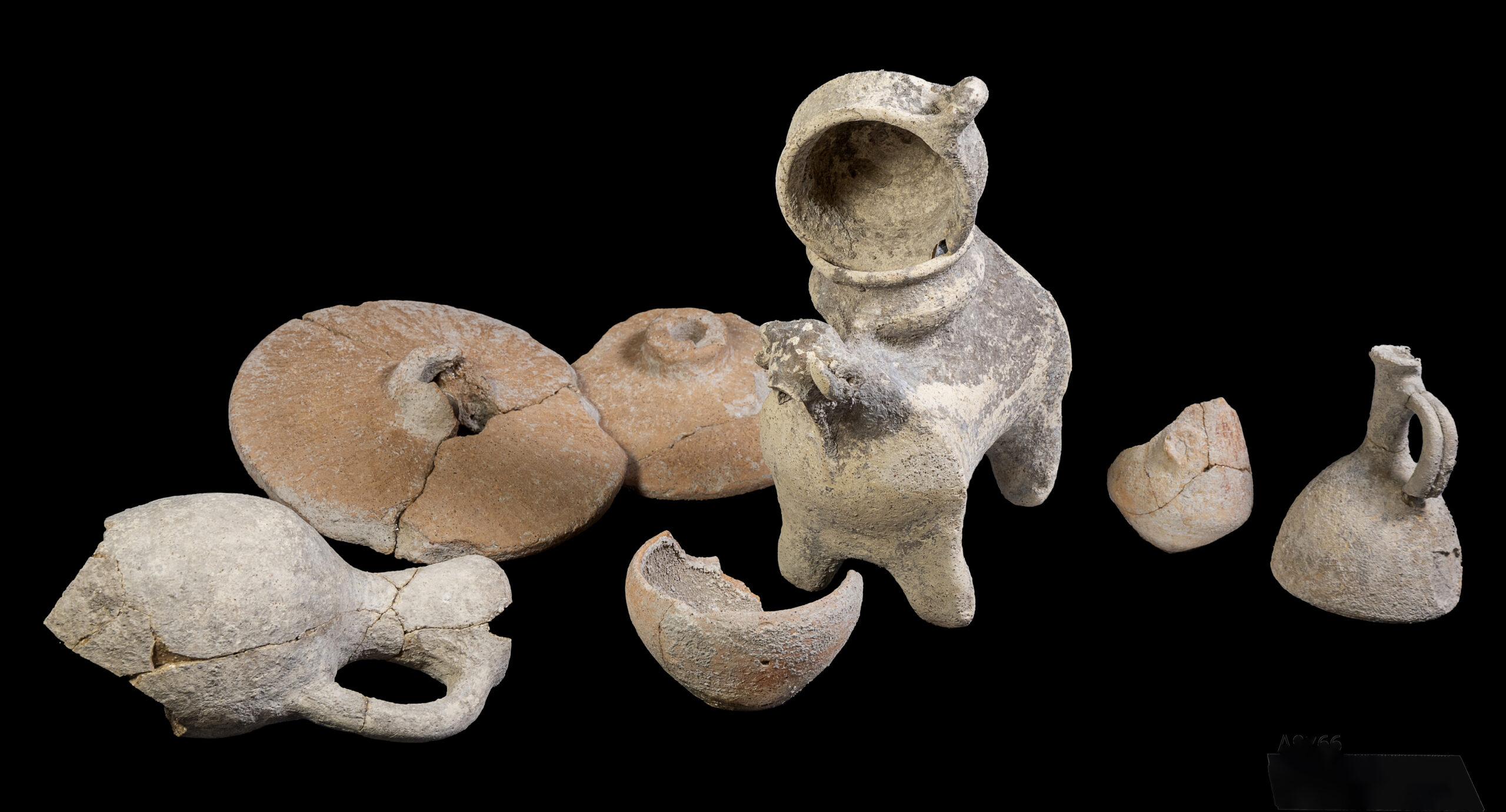Archaeologists in Israel’s North have uncovered one of the oldest winepresses ever found in the Land of Israel, along with ritual vessels revealing how the Canaanites worshiped before the Israelites entered the land. The discovery east of Tel Megiddo, conducted by the Israel Antiquities Authority ahead of the expansion of Highway 66, offers a rare glimpse into daily life and early religious practices in the Jezreel Valley some 5,000 years ago.
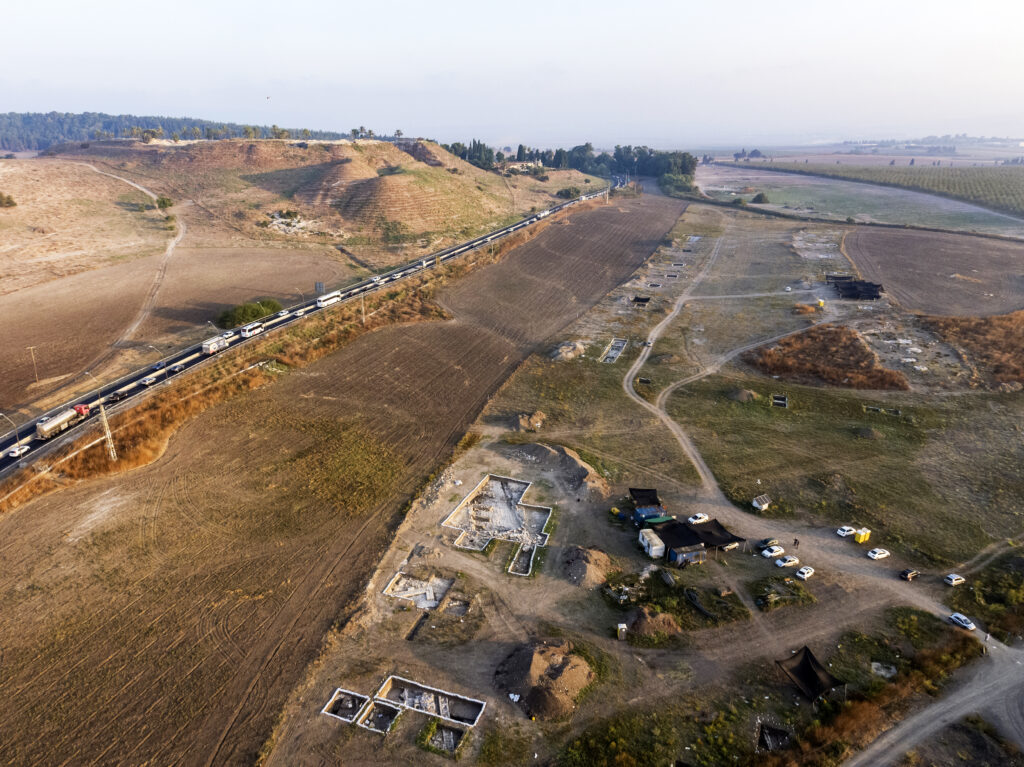
The Israel Antiquities Authority excavation on Highway 66, near Tel Megiddo. Photo: Assaf
The site lies in the shadow of Tel Megiddo—known in the Bible as Har Megiddo, the origin of the word Armageddon—a place where empires clashed and prophecy unfolded. The new discoveries shed light on Megiddo’s early expansion beyond the fortified city and the rural lives of those who lived and worshiped nearby.
The Bible describes the Canaanites as deeply entangled in idolatry and fertility cults. Their worship revolved around natural forces and agricultural bounty rather than the Creator. “And ye shall break down their altars, and dash in pieces their pillars, and cut down their Asherim” (Deuteronomy 12:3). The new finds east of Megiddo illustrate precisely the type of ritual practice that the Israelites were commanded to uproot—a form of worship that celebrated the land’s produce but divorced it from the God who gave it.
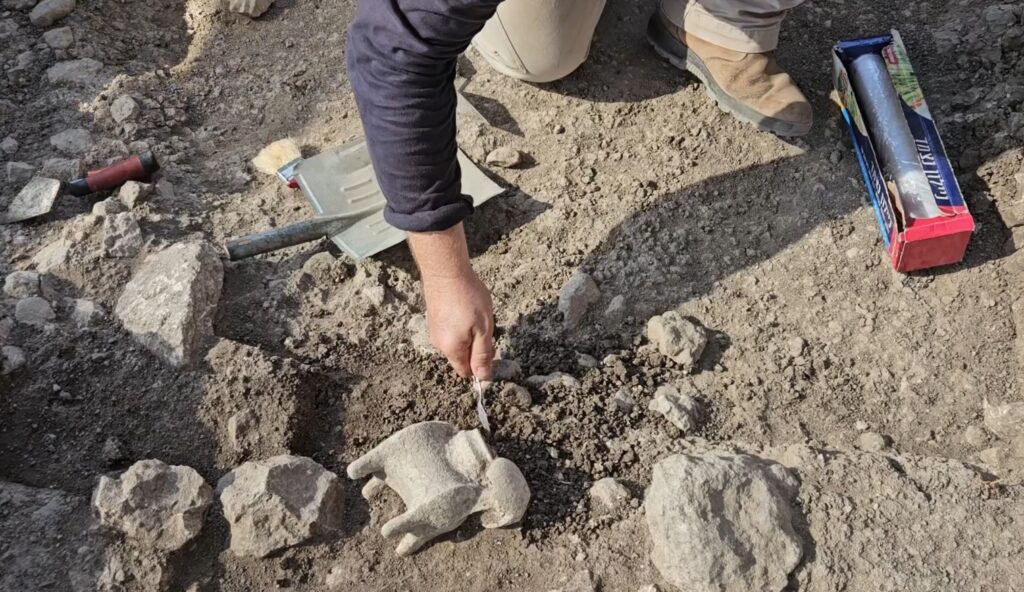
The ram-shaped cultic object as discovered in the field. Photo: Barak Tzin, Israel Antiquities Authority
Dr. Amir Golani and Barak Tzin, excavation directors for the Israel Antiquities Authority, described a small hewn winepress carved into the rock, complete with a treading floor and collection vat. It dates to the Early Bronze Age IB, approximately 5,000 years ago, making it one of the oldest winepresses ever uncovered in Israel. “This winepress is unique, one of very few known from such an ancient period,” they said. “It finally provides clear evidence that early wine production took place here.” Around the winepress, archaeologists found residential structures—signs that the settlement spread well beyond the tell, suggesting a period of urban growth in the Jezreel Valley.
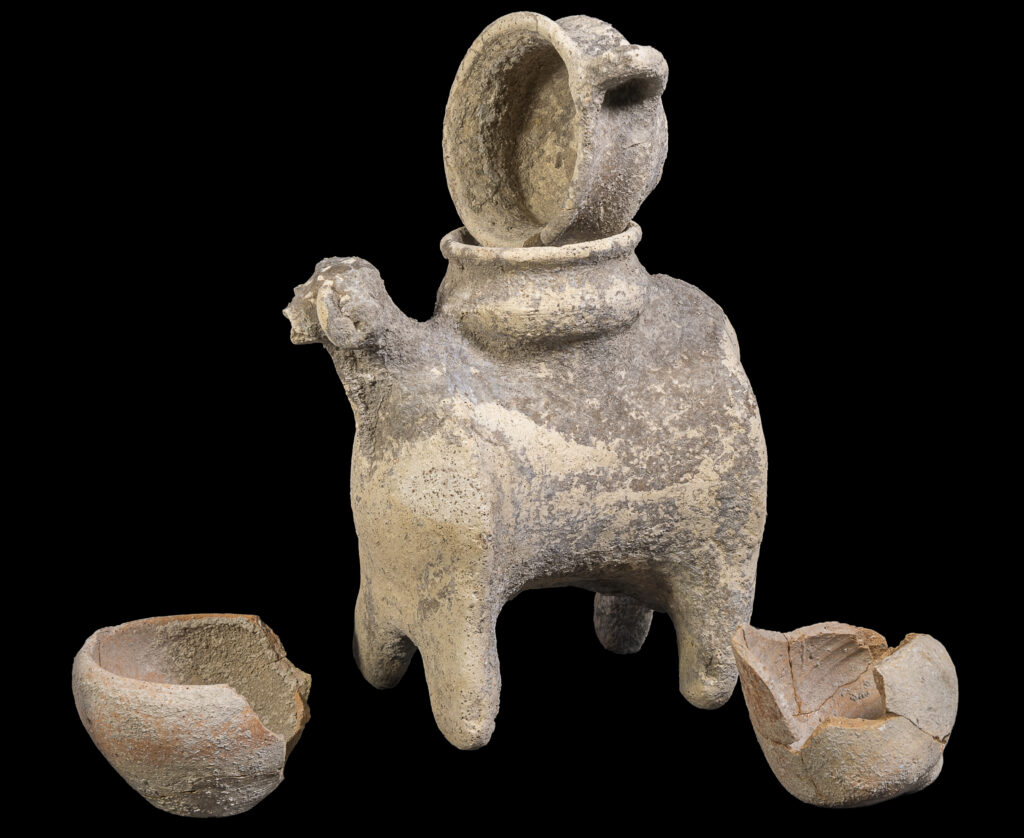
The set of utensils probably used for ceremonial pouring. Photo: Katerina Katzan, Israel Antiquities Authority
From a later period, about 3,300 years ago, researchers found a surprising cache of ritual vessels deliberately buried in the ground. Among them were imported Cypriot jugs, miniature shrine models, and a complete zoomorphic (animal-shaped) libation set centered around a ram-shaped vessel. The ram’s mouth functioned as a spout through which liquids—wine, milk, or oil—were poured during ceremonies. The vessels were placed in direct view of the great temple complex atop Tel Megiddo, indicating that local farmers may have performed their own offerings outside the city’s walls.
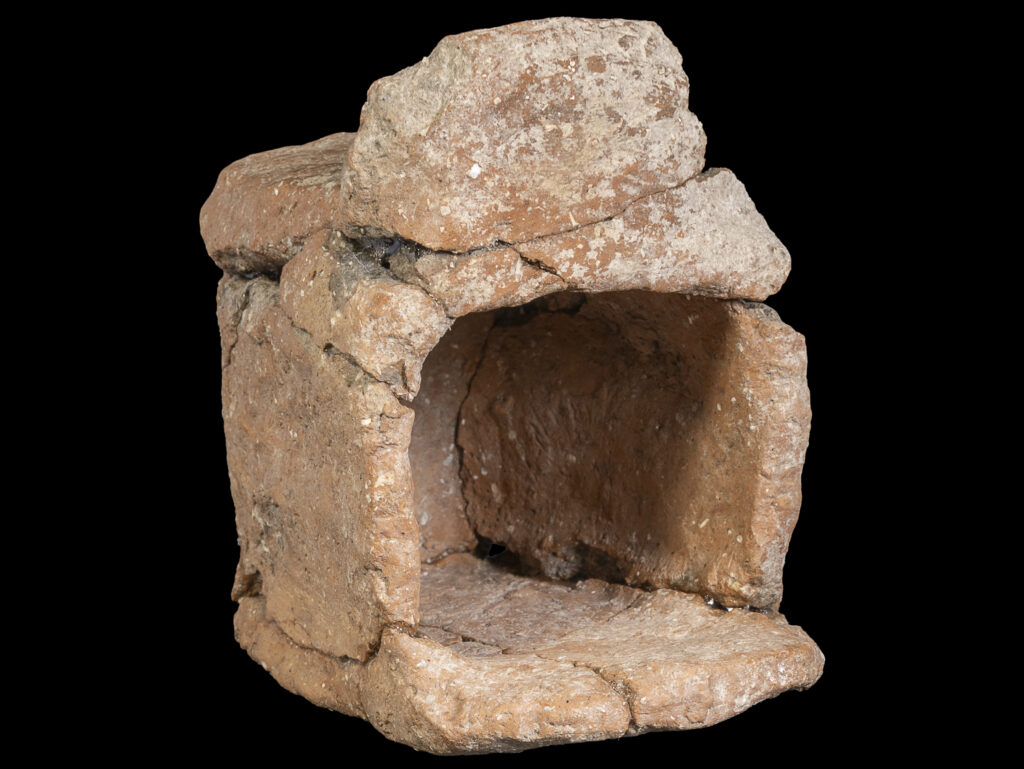
Temple model discovered in the excavation. Photo: Katerina Katzan, Israel Antiquities Authority
These discoveries fit the biblical portrayal of Canaanite life: materially advanced, religiously creative, yet spiritually corrupt. The Sages taught that idolatry was not only a theological error but also a moral one—it replaced obedience to the divine with the worship of human desire. The remnants of these cultic practices, buried for millennia beneath Israel’s soil, are a physical record of a civilization that prized ritual form over divine truth.

Dr. Amir Golani and the vessels discovered in the excavation. Photo: Emil Aladjem, Israel Antiquities Authority
Eli Escusido, Director of the Israel Antiquities Authority, said that the excavations “allow us to become acquainted with the daily life and beliefs of the region’s residents over the course of thousands of years.” The finds, he added, reveal “the wealth of history hidden and embedded in the soil here.”
The Israel Antiquities Authority will display the newly discovered artifacts beginning next week at the Jay and Jeanie Schottenstein National Campus for the Archaeology of the Land of Israel in Jerusalem.
Megiddo’s soil has yielded yet another testimony to the Bible’s enduring accuracy. Beneath the vineyards and highways of today’s Jezreel Valley lie the altars of those who worshiped creation instead of the Creator. Their gods are gone, but Israel remains.



